http://thoughtcatalog.com/tim-hoch/2014/06/10-ways-youre-making-your-life-harder-than-it-has-to-be/
|
If you didn't see this great article by Tim Hoch floating around on the internet this week than click the link, it is enlightening.
http://thoughtcatalog.com/tim-hoch/2014/06/10-ways-youre-making-your-life-harder-than-it-has-to-be/
0 Comments
Suffering from a mental illness is . . . "the scourge of many for whom the creative spirit calls."
http://brainz.org/10-great-painters-who-were-mentally-disturbed/ I have often thought when reading some of my son's writing that to write with such profound meaning and expression requires the person to sacrifice a piece of themselves to their work. I found a list on the National Alliance on Mental Illness site that documents great people in history who have suffered from some type of mental illness. Of course the information does not include every person in history who made an impact on our lives and also suffered from a mental illness, but it does give us a glimpse of how common mental illness is. "People with Mental Illness Enrich Our Lives Abraham Lincoln The revered sixteenth President of the United States suffered from severe and incapacitating depressions that occasionally led to thoughts of suicide, as documented in numerous biographies by Carl Sandburg. Virginia Woolf The British novelist who wrote To the Lighthouse and Orlando experienced the mood swings of bipolar disorder characterized by feverish periods of writing and weeks immersed in gloom. Her story is discussed in The Dynamics of Creation by Anthony Storr. Lionel Aldridge A defensive end for Vince Lombardi's legendary Green Bay Packers of the 1960's, Aldridge played in two Super Bowls. In the 1970's, he suffered from schizophrenia and was homeless for two and a half years. Until his death in 1998, he gave inspirational talks on his battle against paranoid schizophrenia. His story is the story of numerous newspaper articles. Eugene O'Neill The famous playwright, author of Long Day's Journey Into Night and Ah, Wilderness!, suffered from clinical depression, as documented in Eugene O'Neill by Olivia E. Coolidge. Ludwig van Beethoven The brilliant composer experienced bipolar disorder, as documented in The Key to Genius: Manic Depression and the Creative Life by D. Jablow Hershman and Julian Lieb. Gaetano Donizetti The famous opera singer suffered from bipolar disorder, as documented in Donizetti and the World Opera in Italy, Paris and Vienna in the First Half of the Nineteenth Century by Herbert Weinstock. Robert Schumann The "inspired poet of human suffering" experienced bipolar disorder, as discussed in The Dynamics of Creation by Anthony Storr. Leo Tolstoy Author of War and Peace, Tolstoy revealed the extent of his own mental illness in the memoir Confession. His experiences is also discussed in The Dynamics of Creation by Anthony Storr and The Inner World of Mental Illness: A Series of First Person Accounts of What It Was Like by Bert Kaplan. Vaslov Nijinsky The dancer's battle with schizophrenia is documented in his autobiography, The Diary of Vaslov Nijinksy. John Keats The renowned poet's mental illness is documented in The Dynamics of Creation by Anthony Storr and The Broken Brain: The biological Revolution in Psychiatry by Nancy Andreasen, M.D. Tennessee Williams The playwright gave a personal account of his struggle with clinical depression in his own Memoirs. His experience is also documented in Five O'Clock Angel: Letters of Tennessee Williams to Maria St. Just, 1948-1982; The Kindness of Strangers: The Life of Tennessee Williams by Donald Spoto, and Tennessee: Cry of the Heart by Dotson. Vincent Van Gogh The celebrated artist's bipolar disorder is discussed in The Key to Genius: Manic Depression and the Creative Life by D. Jablow Hershman and Julian Lieb and Dear Theo, The Autobiography of Van Gogh. Isaac Newton The scientist's mental illness is discussed in The Dynamics of Creation by Anthony Storr and The Key to Genius: Manic Depression and the Creative Life by D. Jablow Hershman and Julian Lieb. Ernest Hemingway The Pulitzer Prize-winning novelist's suicidal depression is examined in the True Gen: An Intimate Portrait of Ernest Hemingway by Those Who Knew Him by Denis Brian. Sylvia Plath The poet and novelist ended her lifelong struggle with clinical depresion by taking own life, as reported in A Closer Look at Ariel: A Memory of Sylvia Plath by nancy Hunter-Steiner. Michelangelo The mental illness of one of the world's greatest artistic geniuses is discussed in The Dynamics of Creation by Anthony Storr. Winston Churchill "Had he been a stable and equable man, he could never have inspired the nation. In 1940, when all the odds were against Britain, a leader of sober judgment might well have concluded that we were finished," wrote Anthony Storr about Churchill's bipolar disorder in Churchill's Black Dog, Kafka's Mice, and Other Phenomena of the Human Mind. Vivien Leigh The Gone with the Wind star suffered from mental illness, as documented in Vivien Leigh: A Biography by Ann Edwards. Jimmy Piersall The baseball player for the Boston Red Sox who suffered from bipolar disorder detailed his experience in The Truth Hurts. Patty Duke The Academy Award-winning actress told of her bipolar disorder in her autobiography and made-for-TV move Call Me Anna and A Brilliant Madness: Living with Manic-Depressive Illness, co-authored by Gloria Hochman. Charles Dickens One of the greatest authors in the English language suffered from clinical depression, as documented in The Key to Genius: Manic Depression and the Creative Life by D. Jablow Hershman and Julian Lieb, and Charles Dickens: His Tragedy and Triumph by Edgar Johnson." http://www.nami.org/Template.cfm?Section=Helpline1&template=/ContentManagement/ContentDisplay.cfm&ContentID=4858 When the valedictorian of my daughter's high school class was asked what his greatest lesson from high school was, he said, "The amount of people we uplift when someone in a community does something outstanding, or the amount of people we hurt when someone in a community does something disappointing, are both greater than we anticipate. This awareness and sensitivity are something I hope to sharpen and carry with me in the new communities. I will be a part of moving forward."--Siddharth Yarlagadda Be aware of your surroundings and sensitive to the needs of others. When given the opportunity to lift someone up, do it to the best of your ability. When given the opportunity to hurt someone, walk away. The consequences for each are always greater than we can imagine.
We attended college orientation with our daughter over the past two days and I was surprised by the experience. I graduated from Florida State University in 1991 and I did not attend an orientation with my parents where they spent two days following an agenda of meetings and tours. College was about me. I had been raised to be independent and independent was what I wanted to be. I was in charge of my college experience, from filling in applications for financial aid to making sure I paid my tuition on time. My parents were in the background, there if I asked for assistance, but not taking control. I raised my daughter to be independent. She is a take charge person, who likes to do things her way and rarely asks for help, which can sometimes be annoying. However, self-governing is not what many young people are today. I was surprised by the summaries of many of the lectures offered. Such as the one titled Live Where You Learn, "Housing staff will acquaint you with Residence Life policies and procedures, and provide recommendations to help your student make the most of their experience." Why do I need to know the policies and procedures of living in a dorm? I do not plan on moving back into one ever again. My student is the one who needs to know this information. Or there was the lecture on Academic Support, "The Center for Academic Achievement staff, which provides academic support services to students, will discuss their programs and provide tips for academic success for new students." I can't for the life of me figure out why parents need to know where their student would obtain academic support, the student needs to know this, they are the one attending college. I did not attend every lecture and tour scheduled throughout the two days, but somehow the school made me feel as if I were a "bad parent" for skipping. Maybe it was the sentence on the agenda that said, "Your parents and other guests are strongly encouraged to attend these sessions as well." Have things changed this much, that our children need us to constantly interact in their lives?
The website livescience.com posted an article by Rachael Rettner called "Helicopter" Parents Have Neurotic Kids, Study Suggests, which stated that, "Overly protective parents might be leaving a lasting impact on their child's personality, and not in a good way, a new study finds. The results show having so-called 'helicopter parents' was associated with being dependent, neurotic and less open, a slew of personality traits that are generally thought of as undesirable." http://www.livescience.com/10663-helicopter-parents-neurotic-kids-study-suggests.html If intervening for your child at every crossroad is considered ultimately harmful to their mental health, than why do Universities, the place where your student should be truly independent for the first time, foster this behavior? This method of 'helicopter parenting' can also be considered codependency. According to Wikipedia, "Codependency (or codependence, co-narcissism or inverted narcissism) is a tendency to behave in overly passive or excessively caretaking ways that negatively impact one's relationships and quality of life. It also often involves putting one's needs at a lower priority than others while being excessively preoccupied with the needs of others." I admit, I have had a codependent relationship with my son in the past. It started out of necessity to save his life, but it continued into something that allowed me to enable him in negative behaviors. By managing my son's life, I denied him a learning experience. Letting go was exceptionally hard, but gradually I took a back seat to organizing his life. Things may not have been done the way I would have done them, but my son received the care he needed. Allowing him to take charge of his life was what he needed, and what I needed. If I continued to run his life, he would have continued to let me, and he would not have learned how to take responsibility for himself and grow emotionally. This was a lesson we both needed to learn. I am extremely happy that I did not take this approach with my daughter. She does not need or want me to manage her life, and for that I am grateful.  My husband's favorite magazine is Sail Magazine. This month there was an article by Fred Bagley who has been sailing every summer for the past fifteen years with his Brittany spaniel, Max. I read some of the articles in the magazine, but my favorite ones are about the dogs. We can learn so much from our furry friends. Fred writes, "Much of what we have learned about cruising we have learned from him. Remember the old chestnut, 'Live each day like it's your last?' Not Max. He wakes up every day like it's the best day of his life. Hopping up on our bunk in the morning, he looks at us with a goofy grin, wondering when the fun will start. . . .His glass is never half empty. How could we not catch some of his infectious enthusiasm? We don't fear bad weather, but we have learned to apply the Max Factor when cruising. Very early on, Max became adept at moving to leeward (the sheltered, down-wind side of the boat), but when he can't get comfortable, when he moves to the cockpit floor and gives us the 'What's this all about?' look, then it's time to rethink our strategy. . . .When Max is miserable, we have to admit we're miserable, too. It's amazing that it takes a dog to knock some sense into you. Little things never bother Max. . . .It makes us realize that we often fuss about little things. . . .From Max, we have learned instead to just pause, force a grin, and move on. Max may be laid back, but he can also be decisive. Vacate the padded helm seat, he's there. Drop a steak, it's gone. Wishy-washy he is not. We, on the other hand can dither forever. . . .Max's advice would be: if you wonder if something should be done, just do it. We can tell when it's 0800 or 1700 because he points to his food dish. He never misses a meal. . . Max reminds us twice a day that we are what we eat. Eat well, function better. He never misses a chance to investigate something. . .His love of exploring reminds us to look more closely. . .The value of such moments is timeless. Max is old for a Brittany spaniel. One of these summers he won't make the cruise with us. When that summer comes we will remember the greatest lesson he has taught us: you can't sail forever. Until then we will remember when we wake up each morning that this will be the best day of our lives. Thank you, Max." Make today, and everyday the best day of your life. According to PsychCentral, "Narcissistic Personality Disorder is characterized by a long-standing pattern of grandiosity (either in fantasy or actual behavior), an overwhelming need for admiration, and usually a complete lack of empathy toward others. People with this disorder often believe they are of primary importance in everybody’s life or to anyone they meet. While this pattern of behavior may be appropriate for a king in 16th Century England, it is generally considered inappropriate for most ordinary people today. People with narcissistic personality disorder often display snobbish, disdainful, or patronizing attitudes." http://psychcentral.com/disorders/narcissistic-personality-disorder-symptoms/ Full-on Narcissistic Personality Disorder is relatively rare (only 6.2 percent of the population), but narcissistic traits are seen often in individuals. Have you met that person who is only interested in themselves, is patronizing, a know-it-all, or has no empathy for others? The Huffington Post online posted an article in April about a 21 year old woman in Australia who hit a cyclist with her car while she was texting. She was apparently very upset because her car was dented, but she had no sympathy for the cyclist who's spine she fractured. This type of behavior is not only disgusting, but also dangerous. http://www.huffingtonpost.com/2014/04/16/texting-driver-hits-bicyclist-i-dont-care_n_5158966.html?ncid=txtlnkusaolp00000592 The world is full of wonderful, genuine people who are concerned about others. Seek out those people and align yourself with individuals who build you up, not pull you down.
Be interested, not interesting.  "Emotional pain hurts the same as physical pain. Is numbing our pain always a good thing? The more we know pain in all its varying flavors the more we can appreciate the sensations and feelings we like in contrast. If we never felt bitterness or anger, than we couldn't deeply appreciate our happiness. If we never knew fear, than we couldn't admire courage. Maybe to more fully enjoy the beauty in our lives we must first acknowledge and embrace our pain."--TNT, Perception According to Wikipedia "in Chinese philosophy, yin and yang, are concepts used to describe how apparently opposite or contrary forces are actually complementary, interconnected and interdependent in the natural world, and how they give rise to each other as they interrelate to one another. Many tangible dualities (such as light and dark, high and low, hot and cold, fire and water, life and death, male and female, sun and moon, and so on) are thought of as physical manifestations of the duality of yin and yang. Yin and yang can be thought of as complementary (rather than opposing) forces that interact to form a dynamic system in which the whole is greater than the assembled parts."
When you are moving through life and wondering why certain things happen to you, stop and think about the positives that come with, before, or after the negatives. These can often be complementary. If you have experienced great love, you may also experience great loss, if you have had extreme happiness, you may also have felt deep sadness. The negative feelings don't have to overwhelm you and bring you down. Remember they are connected to the positive feelings and without one you can't fully appreciate the other. So, while you are wallowing in the negative, know that maybe around the corner there will be something positive, and when you are experiencing great positivity, stop to be grateful and appreciative for what you have. My baby girl is 18 today. This is her in 1998 when she was two years old. I am so blessed to have such a wonderful daughter.
One of my daughter's favorite quotes is by Elvis Presley, "To judge a man by his weakest link or deed is like judging the power of the ocean by one wave." What a powerful statement. Have a happy weekend! 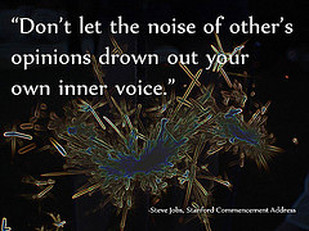 I watched the movie "The Lovely Bones" last night (yes it came out in 2009 and I only just saw it, I'm a little behind) and was awed by multiple things. First, who knew Mark Wahlberg was such a good actor? I've seen him as an action hero or in a comedy, but not in such a dramatic, harrowing role. Second, Stanley Tucci played a very creepy, hair-raising role of pedophile, serial killer, earning him an Oscar nomination for best supporting actor. Third, I appreciated the director's choice of leaving much of the brutal events of the young girls death to our imagination. Alice Sebold, the writer of the novel "The Lovely Bones," apparently did not agree with the director, Peter Jackson's, choice in this matter. Finally, the overwhelming message the movie emitted to me was to trust your inner voice. Young Susie Salmon is lured into an underground cavern by the murderer even though she clearly had doubts. The actress, Saoirse Ronan, gave an outstanding performance. She did not even have to speak and you knew exactly what she was thinking from her facial expressions and body language. All too often we don't listen to our inner voice because we are afraid it may not be right. But, wouldn't you rather suffer some slight embarrassment in being overcautious, than suffer a tragic event? Dr. Alex Lickerman wrote an article for "Psychology Today," titled Listening To Your Inner Voice, How Gut Instinct Is Just Your Intellect On Speed. He compiled a list of reasons why we don't listen to our instincts.
Dr. Lickerman goes on to tell us to trust our intuition, "What is intuition except the rapid assimilation of our impressions of a person or situation that yields a reaction or judgment so quickly we're not sure how it arrived? An intuition is not, in most cases, based on nothing as we often allow ourselves to believe-which we do because we so often fail to perceive the complex machinery functioning beneath the surface that brought us to it. But that machinery does function—in fact, it's only because it functions so quickly and so well that we doubt it functions at all. But if we stop to reflect, to trace back over what was said, what we thought about it, and how we felt about what we thought (a surprisingly difficult thing to do well), we find it is often possible to unearth the pathway by which we arrived at our intuitive reaction, to identify the concrete reasons why we hesitated to make a decision that on the surface seemed a good one." http://www.psychologytoday.com/blog/happiness-in-world/201005/listening-your-inner-voice How can we teach ourselves to listen to our inner voice? It is the same three step method I have written about before. Stop, Look/Listen, and Go. 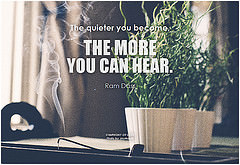 "Give yourself permission to immediately walk away from anything that gives you bad vibes. There is no need to explain or make sense of it. Just trust what you feel."--Sonia Choquette Whether listening to your inner voice saves you from making a bad lunch choice or saves you from a violent death, learn to listen. It is not always easy and it takes practice, but the more you practice listening to yourself, the easier it becomes and the more you hear. 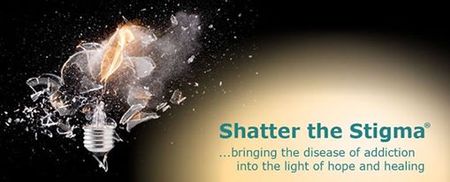 I was contacted yesterday by the representative of a drug addiction center, because of the information I shared on my blog and other sources. She wrote, "I came across your website while searching for organizations to reach out to about addiction awareness. The educational research, resources, and information that you are providing is honestly quite remarkable. Your site provides these valuable tools for those not only in Florida, but those in need all over the world seeking the information you are delivering. I really like your most recent post on Facebook about shattering the stigma of substance abuse. It’s so important to educate people about addiction and recovery. Thanks for sharing!"--http://www.addictioncenter.com/ This is not the first person who has contacted me from a facility and I am glad that my information is seeping out into the world. When my son was having problems, it was difficult to find the right advice and treatment for him and even now I wonder if everything we did was helpful. When you are in a crisis situation you grasp at straws and take whatever is offered. My hope is that some of the information I relay will help just one person to find what they need. I am working hard to finish my memoir and have it available for the public, so that maybe this too will help someone realize that there is hope. My son has decided that he would like to read the memoir before it is released. I have fears that it will set him back into a dark place, but I have to let him choose. The story is mine, but it is also his, so I want him to have a say in its development. Keep your fingers crossed that he doesn't digress or forbid me to publish it. Remember addiction can be a multitude of things. It is not only drugs, but can be cutting, gambling, and video games. Some addictions are more dangerous than others. If you believe you have an addiction reach out and get help. You only need to Google-addiction help-and you will find a plethora of information. If you are not sure whether you have an addiction, check out this extensive site below on all the addictions from a-z. Who knew there were so many? http://www.addictionz.com/addictions.htm Thank you to Addiction Center for the nice email. Check out their site above or on the resources page. 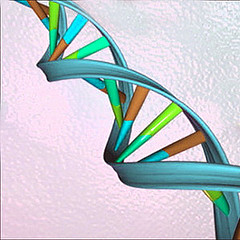 On Monday CNN featured an article on Robert Downey Jr.'s son, Indio, and his arrest for possession of drugs. The family representative stated, "Unfortunately there's a genetic component to addiction and Indio has likely inherited it." Is there a genetic predisposition to addiction or is it lack of self-control? Actually it is both. According to Addictions and Recovery.org, "Addiction is due 50 percent to genetic predisposition and 50 percent to poor coping skills. . . .Although everyone has the potential for addiction, some people are more predisposed to addiction than others. . . . The children of addicts are 8 times more likely to develop an addiction." http://addictionsandrecovery.org/is-addiction-a-disease.htm I have often wondered why society praises those who have overcome an addiction and doesn't recognize those who have never succumbed to one. I looked up this question on the Internet and found one site where it was discussed. https://answers.yahoo.com/question/index Multiple questions and answers were addressed. One person wrote, "Having a daughter who is a recovering addict, it is hard to keep up pats on the back for doing what? the right thing that the rest of us were doing all along? The addict is special because they decided to finally get it together and do the right thing?" Another person commented, " Battling an addiction is a daily struggle. It never goes away - not 10 days, 10 weeks, 10 months or 10 years after an addict gets 'clean.' Giving up an addiction is a difficult process that must be renewed daily. It is all too easy to slip back into the comfort of not having to fight it anymore. I think society praises those who have reversed an addiction as a 'boost' to the recovery process, which is only completed at the end of the life of the addict. It is a manner of support. The rest of society is also special, in that it never had to battle that addiction in the first place, and thus their traverse of life will be easier." The discussion on this site ranged from supportive and understanding to confusion. The confusion was based on an individual's choice in the addiction process. Can an addiction be compared to cancer? My personal opinion is no. The reasoning behind this is that cancer is not a choice and according to many studies, 50% of addiction is based on poor coping skills. The Downey family representative stated to CNN, "There is a lot of family support and understanding, and we're all determined to rally behind him and help him become the man he's capable of being. We're grateful to the Sheriff's department for their intervention, and believe Indio can be another recovery success story instead of a cautionary tale." Revel in the success stories, but remember, "Your genes are not your destiny. The 50% of addiction that is caused by poor coping skills is where you can make a difference. Lots of people have come from addicted families but managed to overcome their family history and live happy lives."--Addictions and Recovery.org |
Archives
January 2019
Click on the RSS Feed link above to follow my blog
|
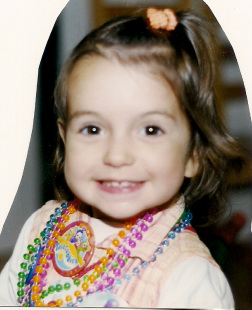
 RSS Feed
RSS Feed